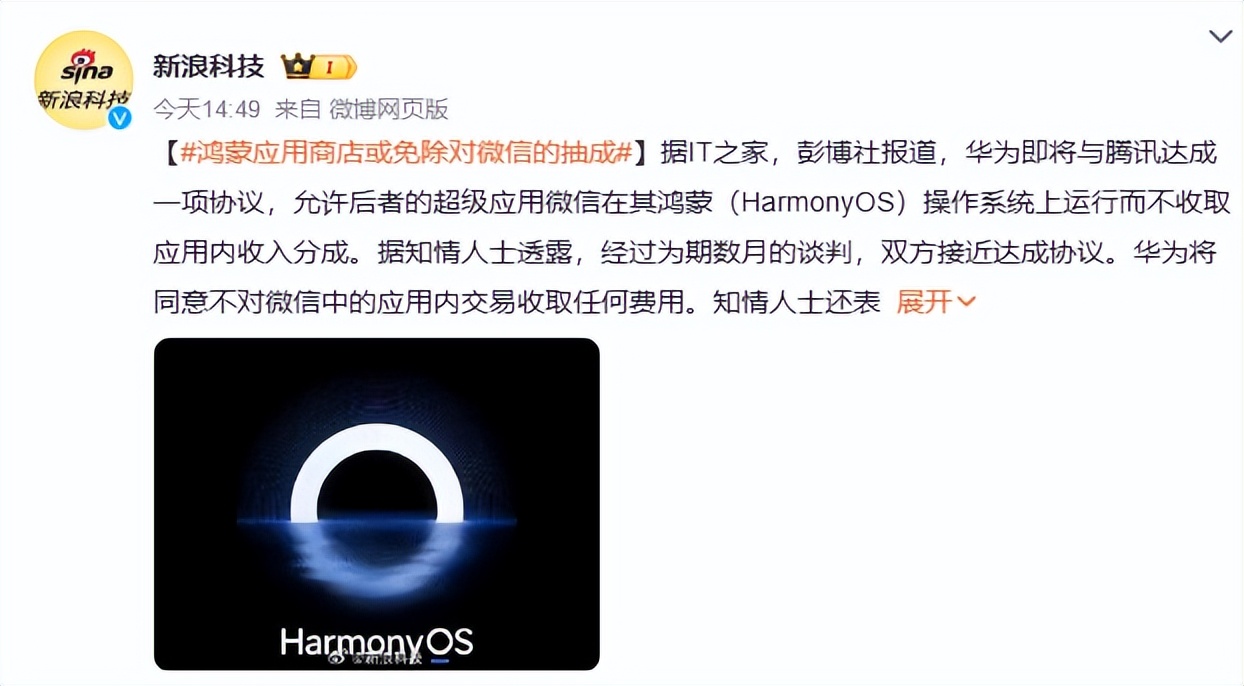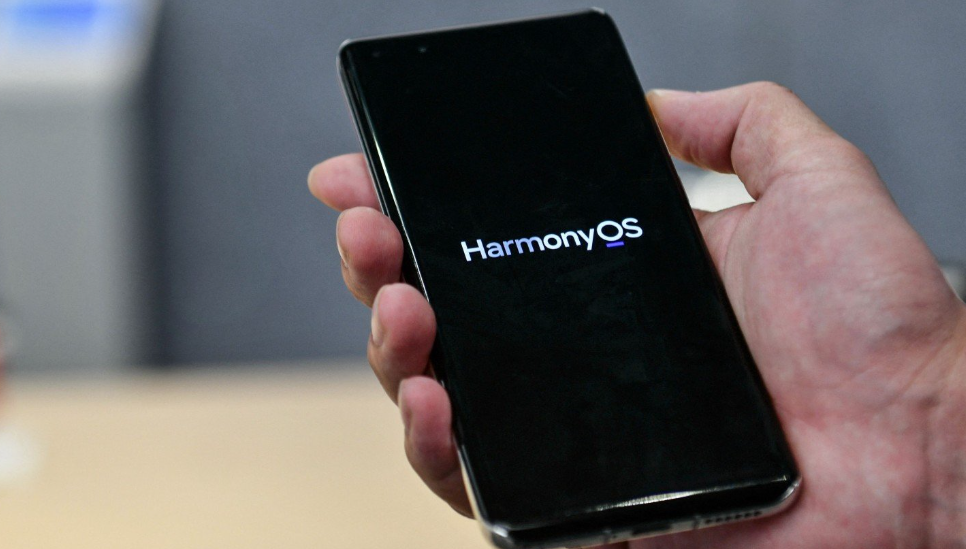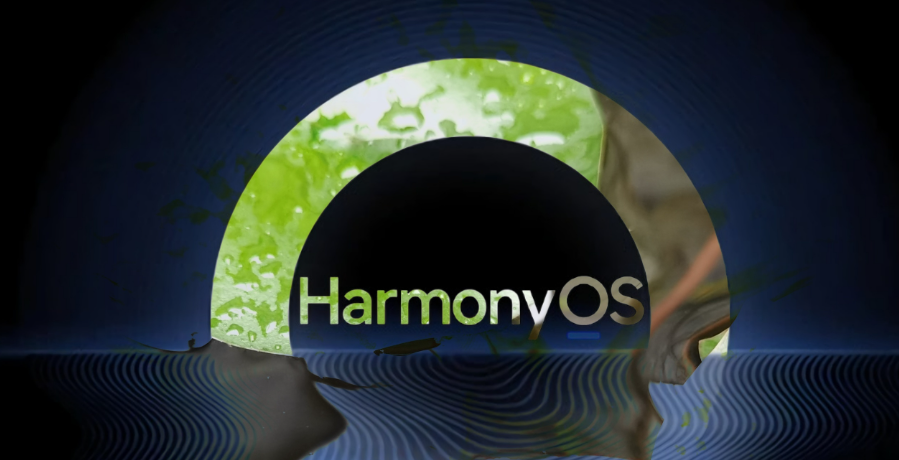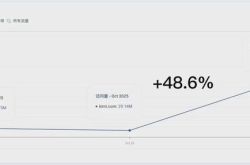The latest news on the WeChat HarmonyOS version has arrived, and the price paid by Huawei is quite significant!
![]() 06/20 2024
06/20 2024
![]() 553
553
A few days ago, I mentioned that the Alipay HarmonyOS version has started testing, and there's no reason why WeChat shouldn't follow suit. However, due to WeChat's sheer size and the numerous matters that need to be negotiated, it will take a bit longer. With the Huawei Developer Conference just two days away, some significant news has been gradually revealed. Today, social media broke the important news that everyone has been concerned about - Huawei and Tencent are close to reaching an agreement, and there should be no major issues with WeChat being launched on HarmonyOS NEXT. Moreover, to attract this heavyweight player, Huawei has paid a considerable price.
For a system to make profits, revenue sharing from in-app purchases is an important means. Apple earns tens of billions of dollars annually from App Store revenue sharing, demonstrating the importance of ecological construction. Once HarmonyOS NEXT is launched, it will naturally adopt a similar revenue-sharing model. There are online rumors that the revenue-sharing ratio for HarmonyOS is 20%, but WeChat has received special treatment. It is reported that Huawei has agreed not to charge any fees for in-app transactions in the HarmonyOS version of WeChat, meaning there is no revenue sharing.

It should be noted that the amount of money generated daily through WeChat in-app transactions is astronomical. Losing this portion of revenue sharing fees, Huawei's losses can be imagined. If this news is ultimately confirmed, it must be a decision made by Huawei after weighing the pros and cons. Sometimes, to accomplish something, paying a certain price is necessary. Because for domestic mobile phone users, WeChat is too important, and once they upgrade to HarmonyOS NEXT, they cannot accept not being able to use WeChat. Whether you are willing to admit it or not, this is the truth.
In exchange for not charging fees, Tencent must continuously update WeChat. Basically, whatever updates are made to the Android and iOS versions, the HarmonyOS version must also keep up. In fact, online media has reported that the two parties did not previously have an agreement requiring regular app updates, meaning that the initiative to update the app lies entirely with Tencent.

HarmonyOS NEXT, as a brand-new system, aims to get as many users as possible in the shortest time, and WeChat is a crucial component. Furthermore, with WeChat, mini-programs can reduce the difficulty of initial app development to a certain extent. Of course, Huawei will not rely too heavily on mini-programs, as this would hinder the development of native HarmonyOS apps.
The question now is how long Huawei will continue to waive fees for WeChat in-app transactions. Personally, I don't think it's likely that they will never charge fees. At most, they may maintain this policy for a longer period. Many netizens also share similar views.

To be honest, Huawei's concession in this matter is also a testament to WeChat's strength and status from another angle. Otherwise, why haven't other apps received such treatment?







